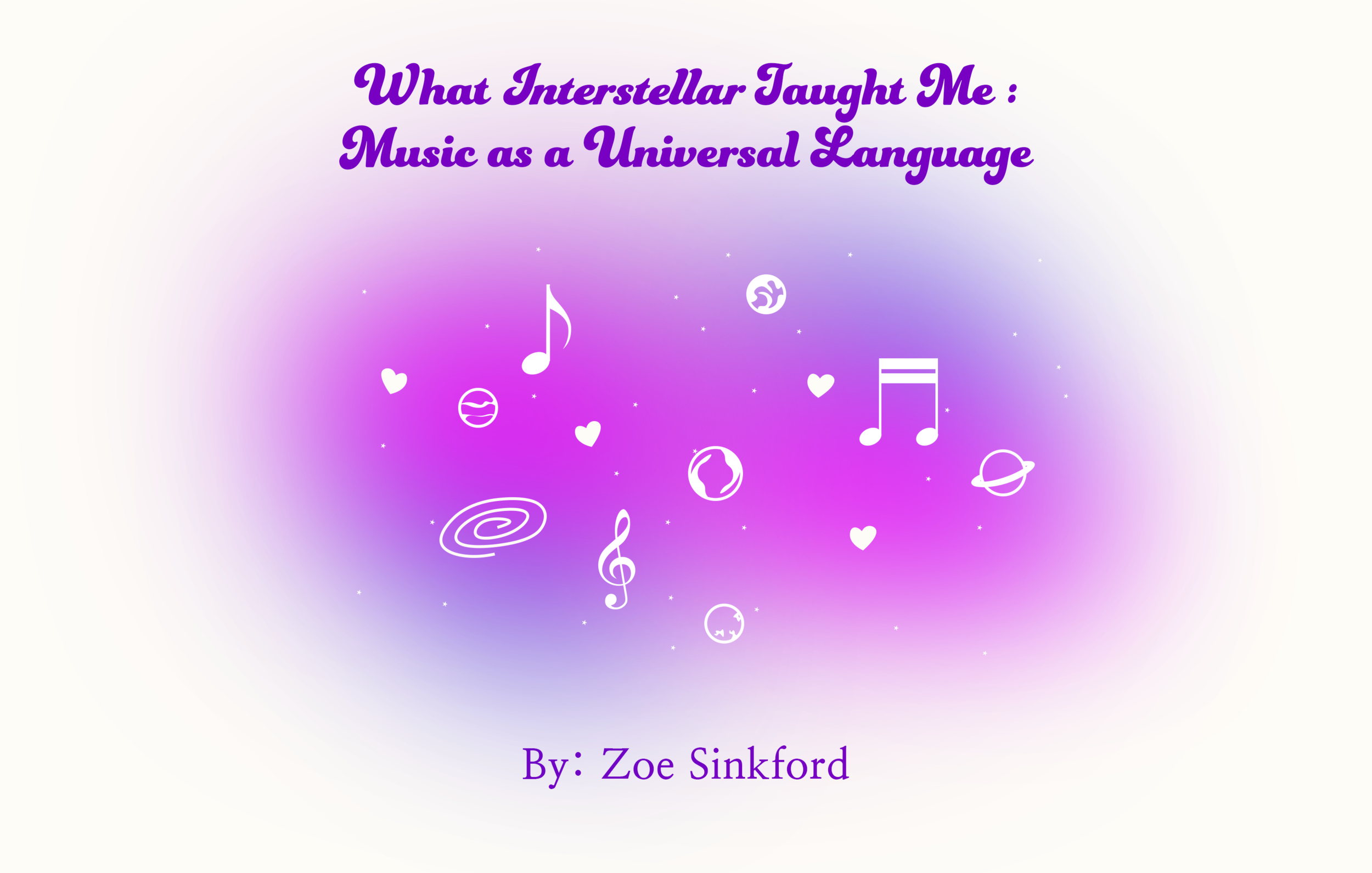February 22, 2022
Editor: Amy Halperin
Artist: Emily Veguilla
It’s kind of funny how I came up with the topic of this article. Actually no, not funny, but in retrospect it’s pretty high level thinking once all of the dots are connected. About a month ago, my friends and I decided to watch Interstellar. I had never seen it, which apparently was a tragic mistake on my part. So we all sat down, and watched it. Let me preface by saying that there’s not a lot of dialogue in this movie, a majority of the experience stems from the kaleidoscopic visuals and an absolutely encapsulating soundtrack. This score completely transports you into the scene; every song pulls at your core and tugs you through the plot of the movie. The most amazing part though, is the absence of lyrics in most of the melodies. After finishing the movie, I couldn’t believe the power that a collection of notes could have over me. What is it about music that has the power to transform our moods? Is there actual meaning behind “good vibrations”?
Eventually, in search of the answer to this question, I stumbled upon Neuromusicology. Neuromusicology is a relatively new branch of the cognitive sciences that studies brain function with music, and how the brain reacts to perceiving and producing sound. Interestingly, I discovered that there are multiple different sections of your brain that become active when listening to music. A prime example of this, is the rush of excitement and adrenaline that is felt when a favorite song comes on. Sometimes just thinking about your favorite song can give you a tiny boost in energy.
Listening to music has the ability to amplify the production of certain neurotransmitters in our brain, such as dopamine and oxytocin. The neurotransmitter dopamine is known for allowing us to feel pleasure and satisfaction, it’s what makes us feel good. Oxytocin is a neurotransmitter that helps us feel bonded and connected to other people, it is often associated with trust and empathy. One of the most heartwarming things I found is that listening and singing to music with others can cause a release of oxytocin, which then induces feelings of companionship and solidarity. Discovering and appreciating music with your friends can actually fortify your bond, a random compilation of sound can unnoticeably link you and those you love together.
You know that feeling when you are driving, all of the windows are down and the music is turned up as loud as it can go? I mean, when the music is so loud that the bass radiates through your body and it’s almost as if your heartbeat has synced to pulse in time with the rhythm? Music inherently has the power to build relationships, lay foundations for memories, and stimulate feelings of self-worth. What I find to be even more striking, is how many different genres of music there are and how different communities have their own unique types of music that they create in order to share their stories with others. Regardless of the words or language used, music crosses barriers and tears down walls. It utilizes love, empathy, power, solidarity, and motivation to birth movements and heal wounds. Music translates sound, vibrations, and rhythm to a universal language meant to be shared between all of us.
Reference Page:
https://bebrainfit.com/music-brain/
https://brightwatergroup.com/news-articles/6-reasons-why-music-improves-wellbeing/

